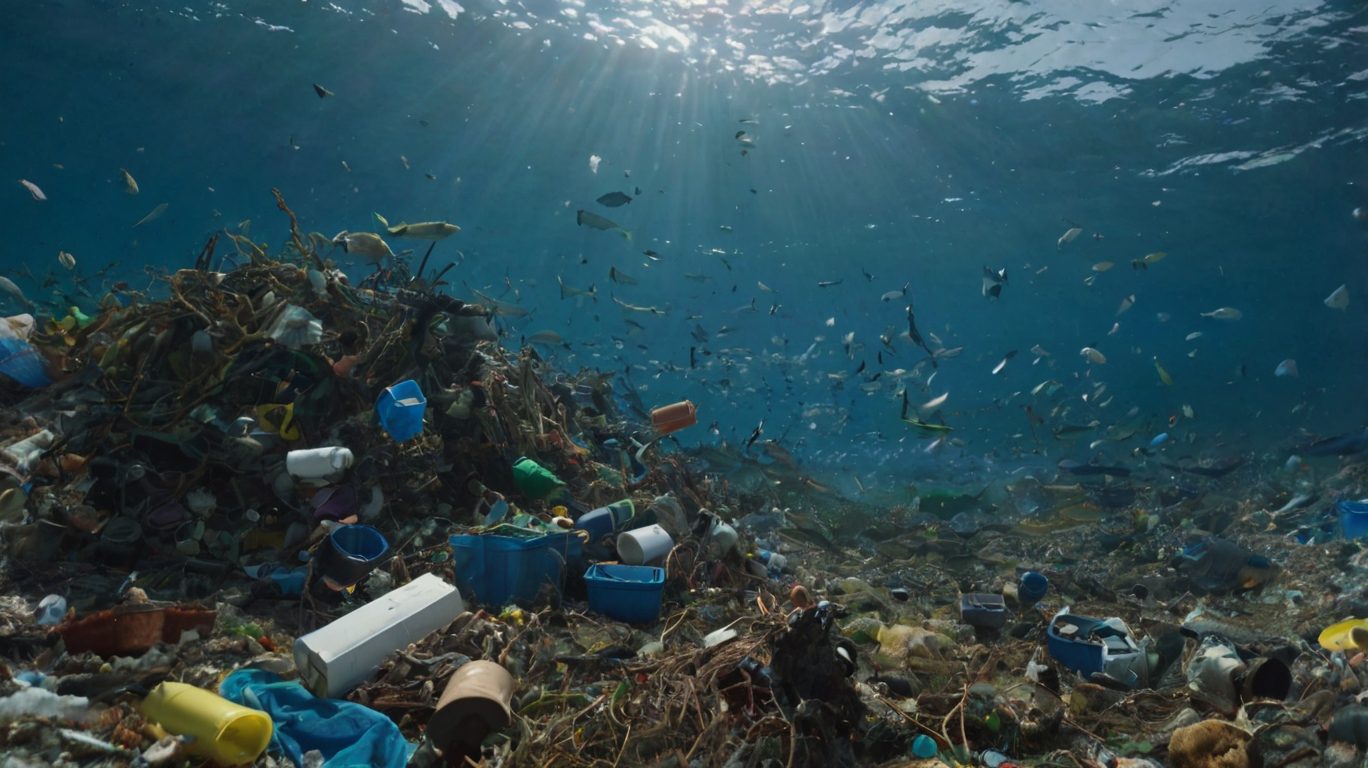November 2, 2024
A Global Crisis

Every year, millions of tons of plastic waste enter the oceans, carried by rivers, wind, and human activity. This plastic pollution poses severe risks to the environment and our future.
Scale and Sources of Plastic Pollution
Plastics, due to their lightweight, durable, and low-cost properties, have become ubiquitous in modern society. However, their persistence in the environment has dire consequences. Plastic waste originates from various sources, including packaging, fishing gear, and consumer products. Poor waste management practices, littering, and industrial activities contribute significantly to the influx of plastics into our oceans. According to a study by the Ellen MacArthur Foundation, by 2050, there could be more plastic in the ocean by weight than fish if current trends continue.
Impact on Marine Life
Once in the ocean, plastics degrade into smaller particles known as microplastics, which are less than 5 millimeters in size. Marine organisms, from tiny plankton to large mammals, mistake these microplastics for food, leading to ingestion and potential harm. For instance, seabirds, turtles, and fish can suffer from digestive blockages, malnutrition, and even death due to plastic ingestion. Entanglement in larger plastic debris, such as fishing nets and plastic bags, can cause injuries, suffocation, and drowning in marine animals.
Ecosystem Disruption
Plastic pollution also disrupts marine ecosystems. Coral reefs, which provide habitat for a quarter of marine species, are particularly vulnerable. Plastics can smother and damage corals, reducing their ability to photosynthesize and grow. Additionally, the chemicals leached from plastics, such as bisphenol A (BPA) and phthalates, can contaminate water and sediments, impacting the health of marine organisms and ecosystems.
Human Health Concerns
The impact of plastic pollution extends beyond marine life to human health. Microplastics have been found in seafood, drinking water, and even the air we breathe. When humans consume contaminated seafood, the chemicals and toxins associated with microplastics can accumulate in our bodies, potentially causing adverse health effects. Research on the long-term impacts of microplastics on human health is ongoing, but it is clear that reducing plastic pollution is crucial for safeguarding public health.
Economic Costs
Plastic pollution also carries significant economic costs. Coastal communities and industries reliant on tourism, fishing, and aquaculture suffer financial losses due to degraded marine environments. Cleanup efforts are costly and resource-intensive, and the persistence of plastic pollution undermines the resilience of marine ecosystems, affecting their ability to provide essential services.
Solutions and Mitigation Efforts
Addressing plastic pollution in our oceans requires a multi-faceted approach involving individuals, industries, and governments. Key strategies include:
Reducing Plastic Production and Consumption: Encouraging the use of sustainable alternatives and promoting a circular economy where plastics are designed for reuse and recycling.
Improving Waste Management: Enhancing recycling infrastructure, waste collection systems, and reducing single-use plastics to prevent plastic waste from entering the environment.
Policy and Legislation: Implementing and enforcing regulations that limit plastic production, use, and disposal, and supporting international agreements to tackle plastic pollution.
Raising Awareness: Educating the public about the impact of plastic pollution and encouraging responsible consumer behavior and participation in cleanup efforts.
Research and Innovation: Supporting research on plastic pollution, its impacts, and developing innovative technologies to capture and remove plastics from the ocean.
In conclusion, plastic pollution in our oceans is a critical issue that demands urgent action. By adopting sustainable practices, supporting policies, and raising awareness, we can protect marine life, ecosystems, and human health from the detrimental effects of plastic pollution. The future of our oceans depends on our collective efforts to reduce, manage, and ultimately eliminate plastic waste.
Helpful Organizations
Organizations dedicated to eliminating plastic pollution in our oceans:
The Ocean Cleanup: Developing and scaling technologies to rid the oceans of plastic.
Oceanic Society: Promoting solutions to reduce ocean plastic pollution and engaging communities in conservation efforts.
Plastic Pollution Coalition: Working to reduce plastic pollution and its toxic impacts on the environment and human health.
Gyres Institute: Conducting research and education to combat plastic pollution in the world's oceans.
Surfrider Foundation: Protecting and enjoying the world's oceans, waves, and beaches through a powerful activist network.
These organizations are making significant strides in the fight against plastic pollution.
Sources: theoceancleanup.com; www.oceanicsociety.org.



